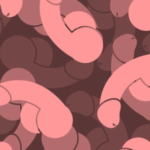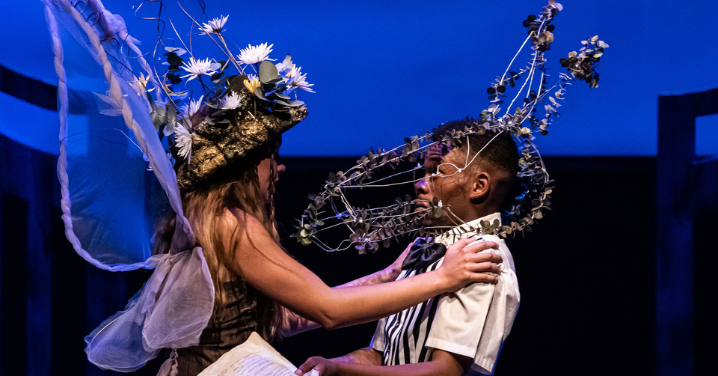The climate crisis frequently discussed today often paints a grim picture of our future on Earth. This scenario has led me to a fascinating question: if humans suddenly vanished, which species from our diverse animal kingdom – encompassing insects and other creatures – might ascend to Earth’s dominant species? Among the myriad of life forms, who could rise up the evolutionary ladder to claim the throne once held by humans in this imagined future?

Ants, often seen scurrying along walls in search of sugary treats, may appear insignificant but possess surprising strength. Their potential to overpower a grown person, especially when collaborating, should not be underestimated.
You might be sceptical, thinking it’s far-fetched to consider ants as potential rulers of the earth. However, ants, as a species, are ancient, dating back to around 110-130 million years ago, the mid-Cretaceous period. This means they’ve been around as long as the dinosaurs!
Consider the diversity within the ant world: there are over 12,000 species of ants globally. An average ant can lift 20 times its body weight. Imagine a young child lifting a small car effortlessly – that’s the level of strength we’re talking about here.
Ants exhibit a fierce, Viking-like spirit in battle, willing to fight to the death to defend their colonies, particularly their queen, who can produce over a million offspring during her lifetime. The queen is the heart of the colony, and her survival is paramount.
Remarkably, ants don’t have lungs. Oxygen enters and carbon dioxide exits through tiny holes all over their bodies, allowing them to work tirelessly without getting winded.
Ant colonies are structured with soldier ants, born and bred for defence and labour. These soldiers protect the queen, gather food, and engage in battles with other colonies for resources and space.
When ants conquer another colony, they take the defeated colony’s eggs. Upon hatching, these new ants become ‘slave’ ants, tasked with caring for the conquering colony’s offspring, gathering food, and building structures. This ‘slave’ system underscores the ants’ complex social structure and survival strategies.
Thus, if you ever find yourself in a tussle with a soldier ant, it’s a fight where everything is at stake. The world of ants is intricate and fiercely competitive, a testament to their resilience and survival instincts.
Ants are not fussy eaters; they exhibit a remarkable range of dietary preferences, with most being omnivorous. From plants and seeds to deceased animals, and surprisingly, even substances like motor oil, ants have a diet as varied as their species. Among these, some are exclusively carnivorous, like the army ants (Eciton burchelli), which prey on a variety of animals including lizards, chickens, pigs, and goats. Imagine that – an entire battalion of ants feasting solely on meat!
On the other end of the spectrum, there are herbivorous ants like the leafcutter ants, which primarily consume plants and fungi. This is a slightly more serene image to contemplate compared to their meat-eating counterparts.
So, to sum up this fascinating world of ants: there are over 12,000 known species, with some having soldier ants that enslave others. Certain species are strictly carnivorous, while others are herbivores. Ants are incredibly strong, capable of lifting more than 20 times their weight. And here’s a mind-boggling fact – it’s estimated that there are one million billion ants living on Earth, collectively weighing about as much as all the humans currently inhabiting the planet. Moreover, ants are virtually omnipresent, inhabiting almost every corner of the globe.
Ants are not only strong and adaptable, but they also display remarkable social behaviours, including caring for their sick and wounded. This level of empathy and cooperation is rare in the insect world. Moreover, these tiny creatures are known to adopt lost or homeless ants, integrating them into their colonies. Astonishingly, some ants can live up to 30 years, a testament to their resilience.
Their survival skills are equally impressive. Ants can stay submerged underwater for up to two weeks, thanks to their minuscule breathing tubes which prevent water from entering. Unlike us humans, who rely on technology like GPS for navigation, ants have a natural compass – they use the Earth’s magnetic field to find their way.

Now, imagine a world without humans, where only animals, insects, and bugs exist. In such a scenario, I firmly believe that ants would thrive unimpeded and could very well become the dominant species on Earth. Picture this: ants growing to a size of 20cm, uniting as a single, formidable force across the planet. With their incredible ability to work in unison and their sophisticated, government-like colony structures, ants are already functioning as super colonies in many ways. Each member knows their role and performs it with precision, ensuring the survival and prosperity of the colony.
If ants were to expand their territories and capabilities in the absence of humans, their potential for global dominance is undeniable. Their expert collaboration, strategic planning, and adaptability would make them an unstoppable force, unmatched by any other species on Earth. The thought of a world ruled by these incredibly organised and resilient creatures is both fascinating and a little daunting.
The Earth, with its plentiful resources, could become a very different place if we consider the remarkable capabilities of ants, especially the soldier ants led by a dedicated queen or two. Give them a few centuries without human interference, and it’s conceivable they could claim dominion over resources and territories, outcompeting other species.

So, there it is – my bold statement: Ants should be regarded with a mix of respect and caution. While this might sound like the plot of a science fiction novel, it’s not entirely outside the realm of possibility, given their demonstrated resilience, strength, and social organisation. One day, they might just grow weary of lurking in the shadows of humankind.
And a light-hearted warning to close – unless you’re an ant (and if you are, then I’m thoroughly impressed by your reading skills), take this as fun speculation. But if ants are indeed our future rulers, then let’s start practising our salutes to these tiny, yet mighty, potential overlords! (But really, just for fun – no need to take up arms against the ant kingdom just yet.)































Ants have the way when you deal with a bigger problem, say climate crisis. A nice post. Thank you!